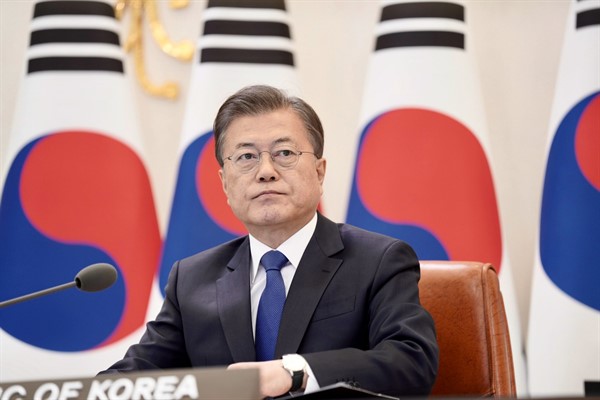Just six months ago, South Korean President Moon Jae-in was stuck in a downward spiral. His scandal-plagued justice minister had resigned after only five weeks on the job, prompting Moon to issue a public apology. The economy was sputtering, relations with neighboring Japan were at rock bottom, and Moon’s signature policy of détente with North Korea was going nowhere. In October, his approval ratings sank to a historically low 39 percent.
It took nothing less than an unprecedented public health crisis to reverse Moon’s fortunes. Widespread approval of his administration’s response to the coronavirus pandemic led South Korean voters to reward Moon with a historic landslide victory in legislative elections last week. His left-leaning Democratic Party, together with a smaller affiliate, now controls 180 of the 300 seats in the unicameral National Assembly—an unprecedented majority in the history of South Korean democracy.
It was a fittingly dramatic result for a president who swept into office in 2017 on a wave of popular protests against his conservative predecessor, Park Geun-hye, who was impeached and removed from office after a corruption scandal. In a country where presidents are constitutionally limited to a single five-year term, and thus prone to early lame-duck status, Moon now arguably has a stronger hand than any of his predecessors did at this point in their presidencies. How he chooses to use his newfound political capital during his final two years in office will have major repercussions not only for his legacy, but also for whether progressives like Moon can continue to dominate South Korean politics in the years to come.

